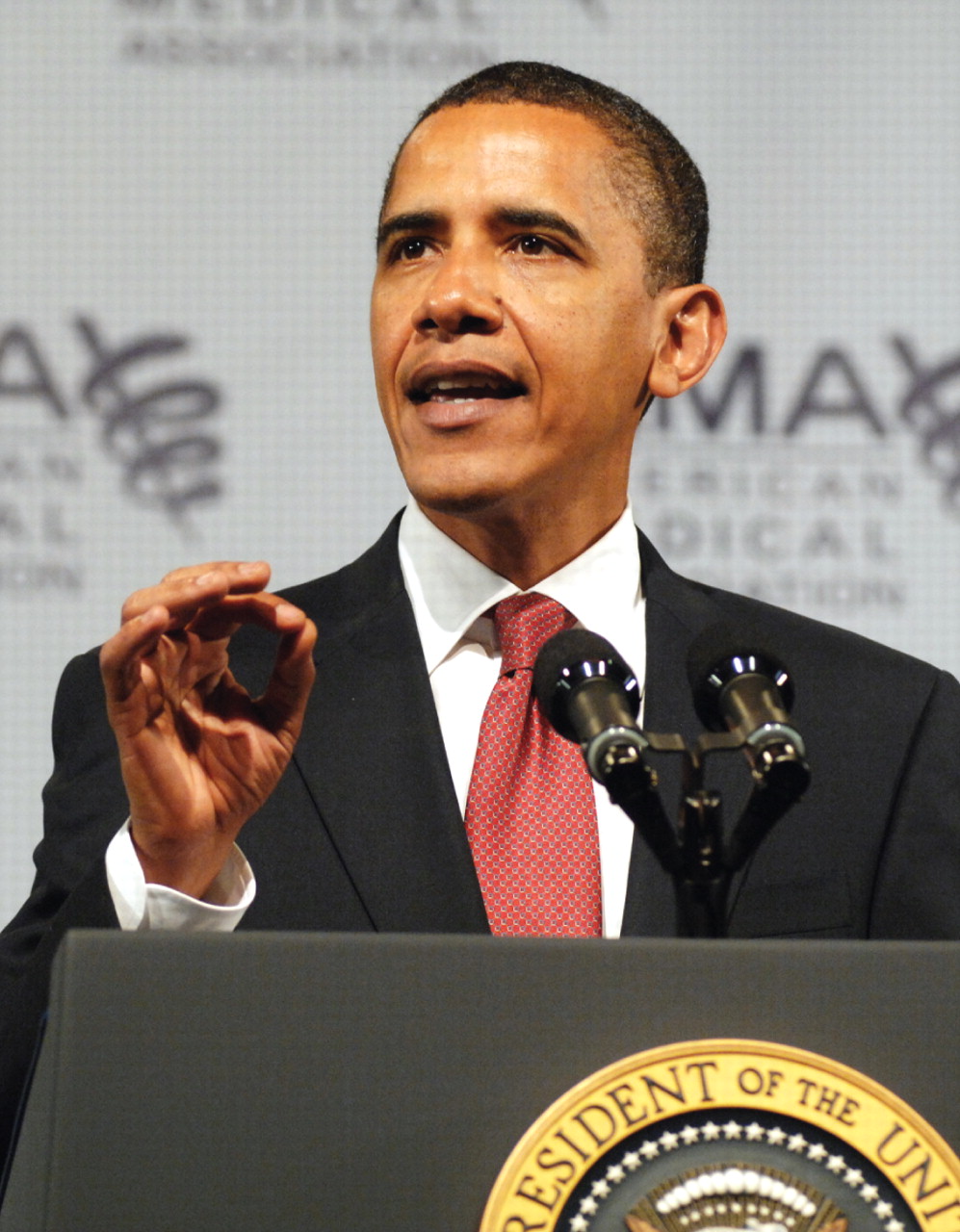Obama Seeks M.D.s' Help to Reform Health Care
Just by striding onto the stage at the AMA's House of Delegates meeting last month in Chicago, President Obama may have won some hearts—a few anyway—in a corner where support may not come naturally.
After all, it had been 25 years since President Reagan visited the AMA. And this was a Democratic president who has made no secret of his admiration for the way a single-payer health system works in some countries or of his preference for a “public option” for health insurance in this one (see Original article: AMA Opposes Single Payer, but Is Open to Public Option).
And as a Democrat, Obama is—in the eyes of many in the AMA—on the wrong side of the malpractice issue: he does not favor caps on malpractice awards.
But while the president did not avoid those difficult issues, or others such as the possibility of “bundling” payments to hospitals and physicians for care of a patient—another subject about which there is some anxiety within the AMA—he mostly came to the AMA with his hand out, asking for help.

President Barack Obama paid a historic visit to the AMA House of Delegates to ask doctors' help in reforming America's health care system.
Photo by Ted Grudzinski / courtesy of AMA
“I need your help, doctors, because to most Americans, you are the health care system,” the president said. “The fact is Americans—and I include myself and Michelle and our kids in this—we just do what you tell us to do. That's what we do. We listen to you; we trust you. And that's why I will listen to you and work with you to pursue reform that works for you.”
AMA leaders and delegates expressed heartfelt appreciation for that.“ We are grateful for your efforts to make the path toward health system reform as open and inclusive as possible and, in particular, that we have been included in those efforts,” said AMA immediate past President Nancy Nielsen, M.D., in remarks introducing Obama.
Section Council on Psychiatry Chair John McIntyre, M.D., said he thought the speech could be a great recruiting tool for the AMA. “I think it's impossible to listen to that speech and say that the AMA is irrelevant, which is unfortunately what some doctors say when they don't join,” McIntyre said. “It's very clear both by being there, and by the content of his message, that the president recognizes the role the AMA has played thus far and will play going forward.”
Past APA President Carolyn Robinowitz, M.D., who has been active in the AMA since 1978, agreed. “If you have never joined the AMA, this is the time to do it, because people are paying attention to us.”
The vice chair of the section council, David Fassler, M.D., said,“ The president gave an impressive address that was received with considerable enthusiasm. He touched on many of the issues troubling physicians and interfering with the practice of medicine.... Overall, I heard lots of common ground with respect to the major goals and objectives. I also think that by his appearance, the president extended a hand to the medical community. In doing so, he furthered the likelihood of actually achieving meaningful reform.”
Those interviewed by Psychiatric News agreed that the president showed a remarkable facility with the difficult core issues related to health care reform and an understanding of physicians' concerns: he emphasized, more than once, that patients who like their health insurance and their doctor will not be required to switch; acknowledged that doctors do not want a replica of the Medicare system, with its broken payment system; recognized the problem of medical-student debt; and said he was in favor of tort reform.
“I think what is remarkable is his ability to capture the essence of the issues in so many venues,” said APA President-elect Carol Bernstein, M.D. “He was able to really articulate the issues facing physicians with regard to health care.”
McIntyre said, “President Obama was clearly aware of many of the most important issues identified by physicians, and his references to what we would call the 'patient-doctor relationship' resonated with the House of Delegates.”
Robinowitz added that it was also a testament to the work that Nielsen and other AMA leaders have done to forge a relationship with the administration.
Though some media reports cited booing—there were scattered boos, of an almost lighthearted nature when the president acknowledged that he did not favor malpractice caps—the response of delegates throughout was largely very positive, with the president stopping many times for applause and for standing ovations.
“People not only applauded, but it was genuine and warm,” said Robinowitz.
Bernstein said, “I think it is critical that our members know that despite what was reported in some of the popular press, almost everything he said in the House of Delegates was met with great enthusiasm.”
There were two topics that the president did not mention in his speech—mental illness and parity—and it did not go unnoticed by section council members. “I was sorry about that,” said Bernstein.“ But it shows that we need to be very proactive and to work with our medical colleagues to make clear to everyone that there is no health without mental health.”
Robinowitz observed that Obama had come to the AMA meeting to talk about health care reform from a broad perspective. “I have no doubts that he supports parity, so it didn't worry me that he didn't directly address that. It does point out to me—and there should be no doubt in anyone's mind—that we have to join with all of medicine and work with all practicing physicians.” ▪



